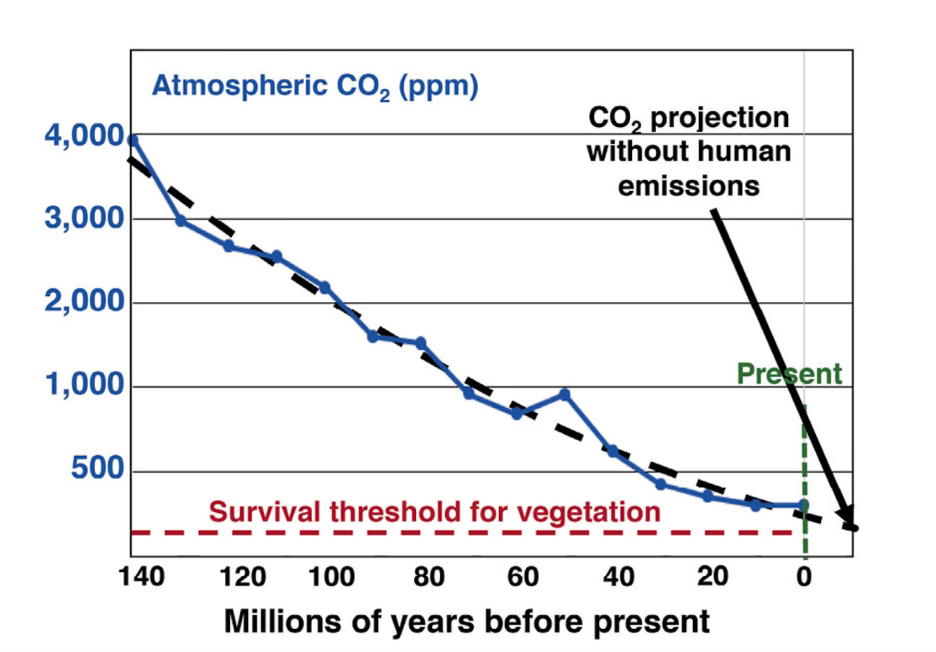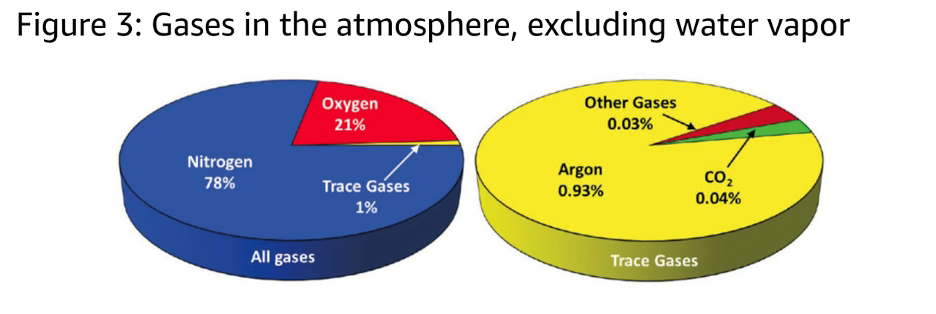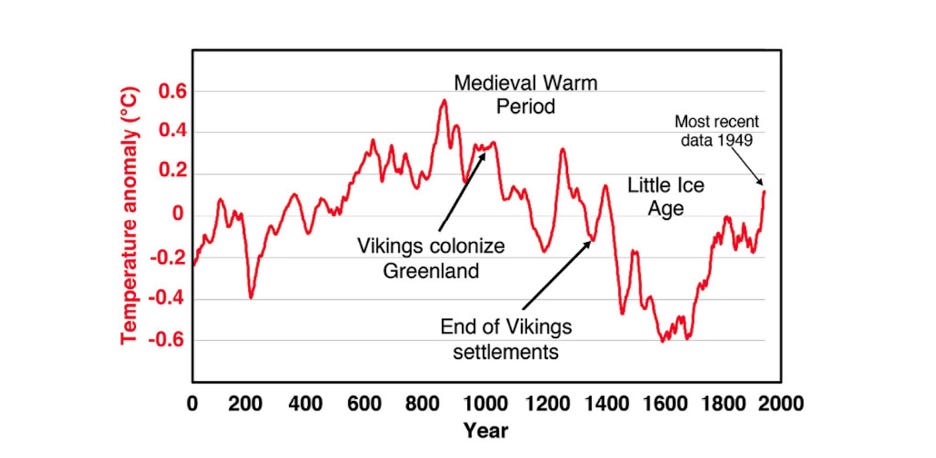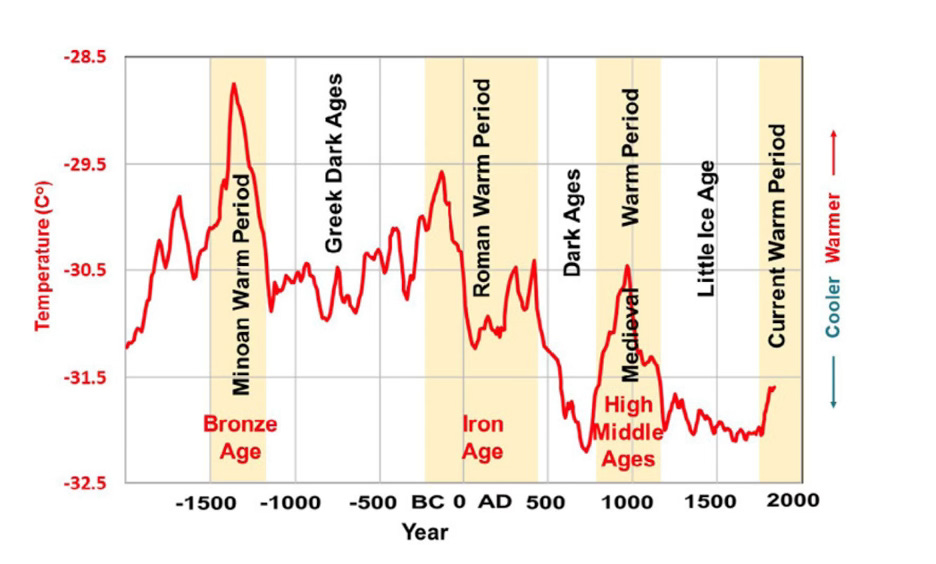Carbon dioxide, or CO2, is portrayed as the worst villain in climate alarmism’s pantheon of satanic gases.
The claim is that increasing levels of greenhouse gases are purportedly driving atmospheric warming to dangerous and unprecedented levels which is said to be leading to ever increasing natural disasters, severe weather events and human health concerns.
But what if these claims are wrong, catastrophically wrong?
What if, rather than being at unprecedented high levels, CO2 is at one of its lowest concentrations in the long history of the Earth and that the modest warming anticipated from increasing concentrations of greenhouse gases will be benign? More carbon dioxide will bring huge benefits to agriculture, forestry and life in general.
Returning guests Dr. Will Happer, Professor Emeritus of Physics at Princeton University, and geologist Greg Wrightstone, both with CO2 Coalition, make a convincing case in this episode for just that. Atmospheric CO2 is the primary carbon source for life on Earth.
Carbon dioxide concentrations — in part due to human emissions — are slowly growing from near-famine, pre-industrial values toward levels that are optimum for plant growth and which have prevailed over most of the geological history of higher life forms.

Carbon dioxide, at a current concentration of about 420 ppm, represents just 0.04% of the atmosphere, or about 420 molecules out of every million. Current levels are an incredibly small percentage of the atmosphere, albeit a critical one, as advanced plant life could not survive without at least 150 ppm. Recent declines in concentration have pushed the world dangerously close to that 150 ppm “line of death.”

Nearly all great leaps in human history occurred during warm periods. Before climate science became politicized, historians called warm periods “climate optima” because Earth’s ecosystems and humanity benefited from the blessed warmth.

Contrary to the demonization of the gas, CO2 is essential to life on Earth. CO2 is not a poison. Without CO2, there would be no photosynthesis, no plant food and insufficient oxygen to breathe. Just some of the benefits of CO2:
- Increasing crop growth
- Increasing soil moisture
- Shrinking deserts
- Expanding forests
- Lengthening growing seasons
- Declining cold-related mortality
What we should be worried about is that throughout most of Earth’s history, carbon dioxide existed in beneficially high levels that were multiples of our current concentration. Geological sequestration of CO2 into fossil fuels has depleted our atmosphere to levels below the optimum for plant growth.

The great irony is that through the burning of fossil fuels, the carbon stored in the remains of ancient plants and organisms is now being liberated and helping to return the planet’s atmosphere to more beneficial levels of CO2.
We can correctly refer to fossil fuels as “natural solar-powered energy” or, if you like, giant solar energy storage batteries!
Without fossil fuels there would be no reliable, low-cost energy worldwide and less CO2 for photosynthesis to make food. Eliminating fossil fuels to attempt to reduce CO2 emissions would be disastrous for the world’s people, especially for the two billion impoverished poor.
An underreported consequence of the “green” energy transformation is the loss of habitats and species.
The “green” solution to a non-existent climate crisis is to encourage a great acceleration in habitat loss by abandoning efficient fossil fuels for inefficient wind and solar energy that requires vast swaths of forest, grasslands and farmlands for solar and wind installations and further habitat loss through:
- open-pit mining of minerals needed for batteries, photovoltaic cells and electric transmission,
- conversion of diverse jungle habitat to plantations for biofuel,
- large-scale electricity transmission lines, and
- destruction of mature forests to make wood pellets as biofuel.
So-called green energy is causing the destruction of massive numbers of birds, bats and insects slaughtered by wind turbines. Offshore wind projects are killing whales, dolphins and other cetaceans.
We have been seized by a great madness.
Under the false claims of coming calamity, bureaucrats and politicians seek to shut down coal-fired power plants, kill the internal combustion engine, ban natural gas for home use, and advance the misguided objective of a “net zero” economy.
Men, it has been well said, think in herds; it will be seen that they go mad in herds, while they only recover their senses slowly, and one by one.
Charles MacKay
What historians will definitely wonder about in future centuries is how deeply flawed logic, obscured by shrewd and unrelenting propaganda, actually enabled a coalition of powerful special interests to convince nearly everyone in the world that carbon dioxide from human industry was a dangerous, planet-destroying toxin. It will be remembered as the greatest mass delusion in the history of the world — that carbon dioxide, the life of plants, was considered for a time to be a deadly poision.
Dr. Richard Lindzen
I don’t see a whole lot of difference between the consensus on climate change and the consensus on witches. At the witch trials in Salem the judges were educated at Harvard. This was supposedly 100 per cent science. The one or two people who said there were no witches were immediately hung. Not much has changed.
Will Happer

